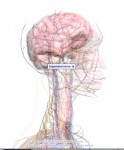Why the Term ‘Patient’ Is So Important in Health Care
roviding health care is or should be unlike other commercial transactions. The doctor, or other person who gives medical treatment, has a special professional and moral obligation to help the person who’s receiving his or her care. This responsibility – to heal, honestly and to the best of one’s ability – overrides any other commitments, or conflicts






